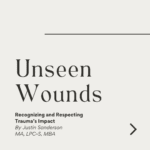A Veteran’s journey doesn’t end with the completion of their service; for many, it marks the beginning of a different battle that unfolds within their minds. Mental health struggles among Veterans are a stark reality, and it is imperative to address them with empathy, understanding, and a commitment to support those who have bravely served our country.
Signs That a Veteran May Be Struggling
A Veteran may not want to admit they are struggling with mental health challenges and may attempt to mask the signs. They may have concerns about the stigma that often comes with a mental health diagnosis. It is imperative to be aware of the signs that a Veteran may be struggling to get them the treatment they may need.
Signs may include the following:
- Withdrawal and isolation: Veterans facing mental health challenges may tend to withdraw from social activities and isolate themselves. This isolation can be a coping mechanism, but it can also intensify feelings of loneliness and exacerbate their mental health struggles.
- Changes in mood and behavior: Abrupt changes in behavior, such as increased irritability, anger, or mood swings, may indicate underlying mental health issues. Veterans may struggle to regulate their emotions, leading to noticeable shifts in their demeanor.
- Difficulty sleeping: Insomnia or disrupted sleep patterns are common indicators of mental health issues. Veterans may experience nightmares or have difficulty falling and staying asleep, contributing to fatigue and exacerbating existing mental health challenges.
- Hyperarousal or hypervigilance: A heightened state of alertness, often described as hyperarousal or hypervigilance, can be a sign of post-traumatic stress disorder (PTSD). Veterans may display an exaggerated startle response, constantly scanning their environment for potential threats.
- Substance abuse: Some Veterans turn to substance abuse to cope with the emotional or physical pain they are experiencing. An increased reliance on alcohol, drugs, or prescription medications may be indicative of an attempt to self-medicate.
- Difficulty concentrating: Mental health challenges can impact cognitive functions, leading to difficulties in concentration and memory. Veterans may struggle to focus on tasks, experience forgetfulness, or find decision-making more challenging than usual.
Types of Mental Health Issues Affecting Veterans
Veterans can face various mental health issues, with the following being among the most common:
- Post-traumatic stress disorder (PTSD): PTSD is perhaps the most widely recognized mental health issue affecting Veterans. It can result from exposure to traumatic events during military service, causing intrusive memories, nightmares, and heightened emotional reactivity. Effective treatment often involves therapy, such as cognitive-behavioral therapy or EMDR (eye movement desensitization and reprocessing).
- Depression: Veterans may experience depression, characterized by persistent feelings of sadness, hopelessness, and a loss of interest in activities they previously enjoyed. Depression can significantly impact daily functioning and often requires a combination of therapy and, in some cases, medication.
- Anxiety disorders: Disorders such as generalized anxiety disorder, panic disorder, and social anxiety are prevalent among Veterans. The constant stress and unpredictability of military life can contribute to the development of these anxiety disorders. Treatment options may include therapy, medication, or a combination of both.
- Traumatic brain injury (TBI): Veterans exposed to blasts or head injuries during their service may suffer from traumatic brain injuries. TBIs can result in cognitive impairment, mood changes, and behavioral issues. Rehabilitation and specialized care are crucial components of managing TBIs.
- Military sexual trauma (MST): Unfortunately, some Veterans, particularly women, may experience military sexual trauma. This can lead to a range of mental health issues, including PTSD, depression, and anxiety. Specialized therapy and support services are essential for survivors of MST.
Support for Veterans Struggling with Their Mental Health
There are numerous organizations and recovery centers, such as Stone River Recovery Center, dedicated to providing mental health support for Veterans. These organizations and recovery centers offer various services, from counseling and therapy to crisis intervention and community outreach.
In addition, the following can also provide support for Veterans:
- Peer support programs: Peer support programs connect Veterans with others who have faced similar challenges. Shared experiences create a sense of camaraderie, understanding, and mutual support.
- Mental health professionals: Veterans should have access to mental health professionals trained in military-specific issues. The Department of Veterans Affairs (VA) provides mental health services, including counseling, therapy, and psychiatric care. Seeking help from professionals who understand the unique challenges Veterans face is crucial.
- Community involvement: Engaging Veterans with their local communities fosters a sense of belonging and support. Community organizations, events, and initiatives that honor and appreciate the sacrifices of Veterans contribute to a positive environment for their well-being.
- Family and social support: The support of family and friends is invaluable in a Veteran’s mental health journey. Creating a safe and understanding space for open communication can help Veterans feel heard and supported. Educating loved ones about the signs of mental health struggles is crucial for early intervention.
If you are a Veteran struggling with a mental health issue, remember that you are not alone. Stone River Recovery Center in San Antonio, Texas, is ready to guide you through the path of recovery, offering support such as detox services and residential treatment that includes trauma-informed care. To find out more about our services and how we can help you, please contact us today.






